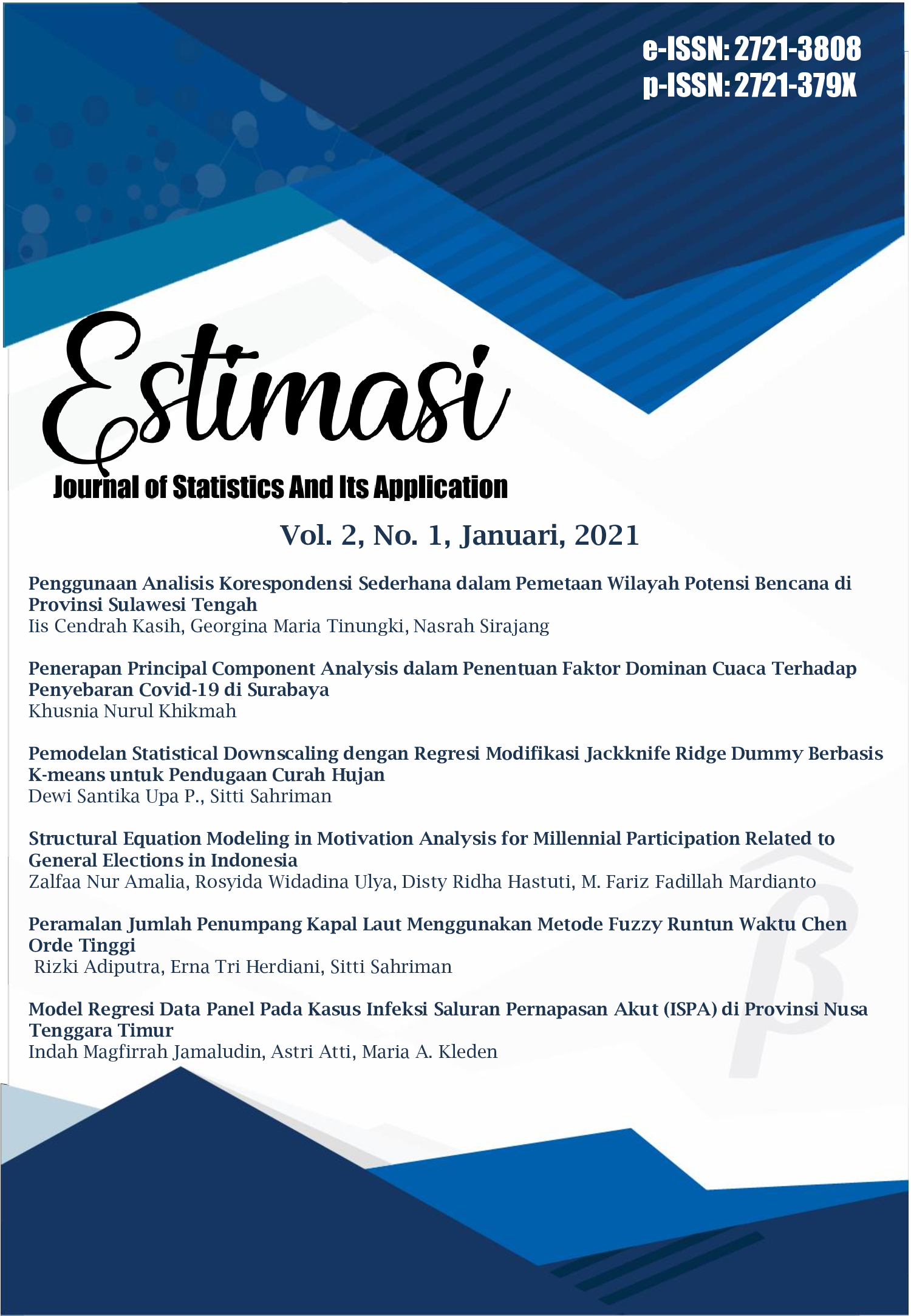Model Regresi Data Panel Pada Kasus Infeksi Saluran Pernapasan Akut (ISPA) di Provinsi Nusa Tenggara Timur
DOI:
https://doi.org/10.20956/ejsa.v2i1.12504Keywords:
ARI, Outlier, Random Effects ModelAbstract
Acute respiratory infection (ARI) is an infectious desease cause by bacteria or viruses that attack the respiratory organs. This research aims to determine the best panel data regression model in the case of the factors that influence the number of patients with ARI in East Nusa Tenggara Province from 2014 to 2018. Response variable used is the number of ARI patients. Independent variables were observed among others, low birth weight, malnutrition, immunization, exclusive breastfeeding, and vitamin A in 22 districts or city in East Nusa Tenggara. The results showed that the Random Effect Models eliminate outlier data on response variable is a model that can describe the influence of independent variables on the number of patients with ARI in East Nusa Tenggara Province from 2014 to 2018. Variables that influence of ARI are malnutrition and exclusive breastfeeding with a coefficient of determination (R) of 9,2%.
References
World Health Organization (WHO). Pneumonia: The Forgotten Killer of Children, 2006.
Kemenkes RI. Profil Kesehatan Indonesia tahun 2017, 2018.
Dinas Kesehatan Provinsi NTT. Profil Kesehatan NTT Tahun 2016. Kupang: DinKes NTT, 2017.
Baltagi, B. H. Econometric Analysis of Panel Data. Ed ke-3, Chichester : John Wiley and Sons Ltd, 2005.
Jaya, I. G. N. M., & N. Sunengsih. Kajian Analisis Regresi dengan Data Panel. Prosiding Seminar Nasional Penelitian. Yogyakarta: Universitas Negeri Yogyakarta, 2009.
Greene, Wiliam H. Econometric Analysis Ed ke-7. London : Pearson Education, 2012.
Downloads
Published
Versions
- 2021-05-15 (6)
- 2021-01-15 (5)
- 2021-01-15 (4)
- 2021-01-14 (3)
- 2021-01-14 (2)
- 2021-01-14 (1)
Issue
Section
License
Copyright
It is the author's responsibility to ensure that his or her submitted work does not infringe any existing copyright. Authors should obtain permission to reproduce or adapt copyrighted material and provide evidence of approval upon submitting the final version of a manuscript.


